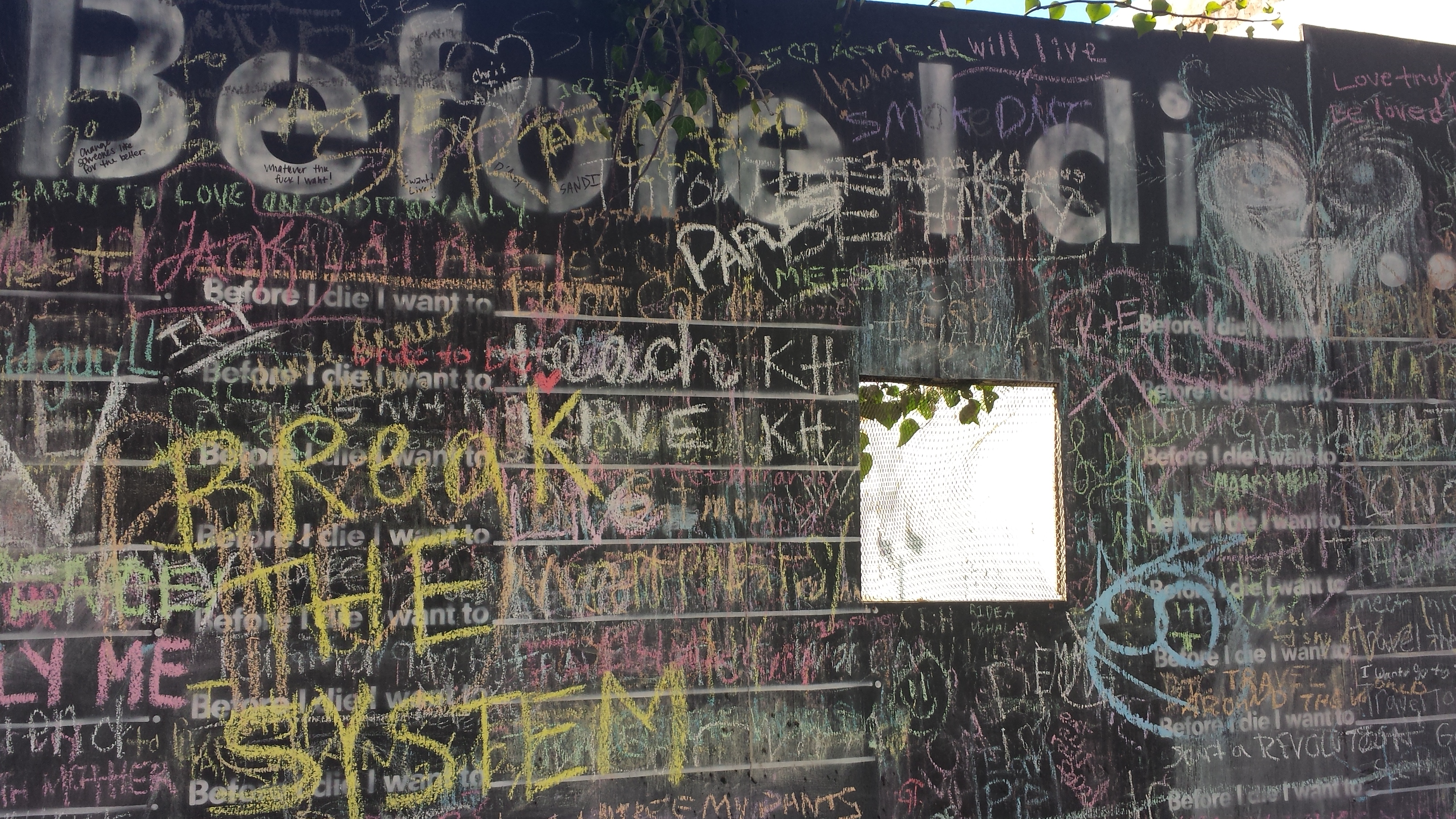Over the past year or so, I’ve become a bit distant from social media. It all started when my Instagram was hacked, and I lost control of it forever. I entertained the idea of a new one — even created the profile — but felt drained over the idea of having to curate a whole new feed and following.
During one of my busier semesters in college, I was left with little time to scroll social media, and I found it made me leagues happier. So, I somewhat reluctantly decided not to bother with Instagram or Snapchat (still trying to figure out how to get rid of my personal Facebook and still be able to manage my business pages!)
I’ve found a freedom in my lack of social media presence. I noticed how often I would do things “for the pic,” and I started to enjoy just being in the present, without worrying if my lunch salad was worthy of X number of likes.
Last night, I found an even greater freedom.
I went to a concert last minute for my favorite band. I was aware they were coming to town for some time, but had opted not to go because #christmas $$$$$. But the morning of the concert, I couldn’t stop thinking of the show I’d be missing – okay, call it FOMO – but it was deeper than that. Something in me said I needed to be there. And as a Christmas gift to myself, I bought the tickets and towed my reluctant husband to the city on a Wednesday night.
And I didn’t take a single photo. Didn’t even post to Facebook where I was. And the feeling that I was simply someone on this earth, in this glorious, soul-wrenching moment of watching my favorite band perform, and the only one witness to it was myself… I cannot describe the feeling. I shared three hours of my favorite music with my favorite person, and all I have to show for it is my memories. And this I cherish more than the other videos I have from other concerts.
While those around me watched the concert from their phone screen, I watched it through my own eyes. I watched the magic of people closing their eyes, feeling the music around them. I felt my heart stir as hundreds of voices sang out in unison a lyric I’d heard countless times through a set of speakers. I blinked back tears from my own eyes as I witnessed musicians lay bare their talents and passions and voices to a room of strangers. I reveled in a feeling of absolute rightness. A feeling that where I stood in that sea of people was the only possible place I was meant to be at that moment in time. A feeling that the universe put me there to be inspired and moved and joyous and free.
And I’ve not a single photo that captured it. No photo could. Magic is not so easily snared. I think we’ve lost touch with this inherent magic in the world, if only because we are looking at it through a phone screen or a camera lens.
When did we forget that we’ve been blessed with eyes that can see, brains that can store memories, a nervous system that can recall past feelings — that we’ve been blessed with the most powerful camera within ourselves, a camera that can capture magic?
I certainly forgot along the way, but I’m finding my way back.




 The past couple days my life has been strung together by a series of coincidences that are just too good not to believe that the universe meant for them to happen exactly as they played out. For you to understand completely, I must start with some background on my general disposition as a person.
The past couple days my life has been strung together by a series of coincidences that are just too good not to believe that the universe meant for them to happen exactly as they played out. For you to understand completely, I must start with some background on my general disposition as a person.